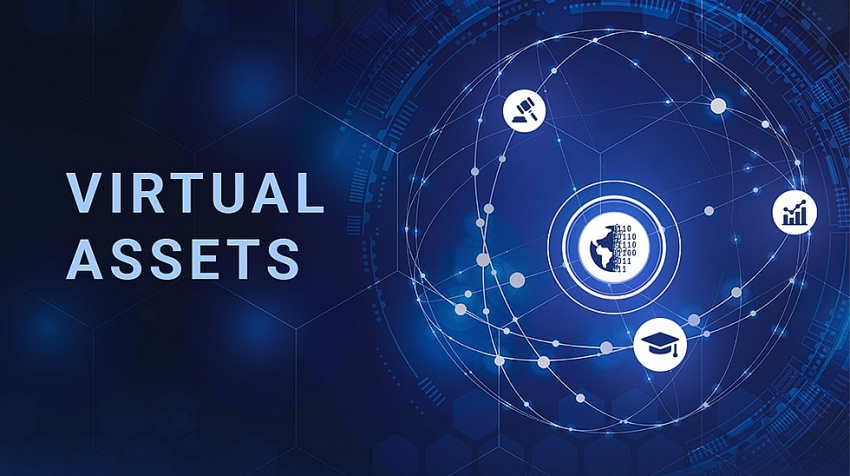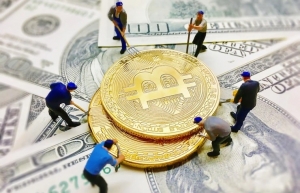Virtual assets in Vietnam: a regulatory outlook
 |
| Picture source: www.bitbon.space |
Virtual assets are a relatively new concept, sporadically being defined worldwide. For instance, virtual assets defined by the Financial Action Task Force (FATF) refer to any digital representation of value (excluding fiat currencies) that can be digitally traded, transferred, or used for payment.
As another example, the Financial Services and Markets Regulations define virtual assets as digital representation of value which can be digitally traded and functions as a medium of exchange and/or a unit of account and/or a store of value without having legal tender status in any jurisdiction
 |
| Thai Gia Han, associate (left), and Nguyen Trung Nghia, legal assistant from Indochine Counsel |
In Vietnam, virtual assets, Bitcoin, and other similar virtual currencies were determined to be neither a type of money nor a legal means of payment. The use of illegal means of payment will be subject to administrative sanctions or criminal prosecution for more serious acts.
Currently, the Vietnamese legal system does not have specific regulations regarding the recognition of virtual assets as one of the legitimate properties. The Civil Code 2015 only stipulates that property comprises “objects, money, valuable papers and property rights” and does not provide a clear answer to whether virtual assets are considered property or not.
Distinguishing virtual assets and similar types
In actuality, “virtual asset” and “digital asset” are occasionally used synonymously. To clarify their nature, we will contrast them with other types of cryptocurrencies and digital currencies based on the following precise criteria:
| Type of Asset | Definition | Purpose of Use | Common Manifestation |
| Virtual Asset | As described in Section “Overview” above |
|
|
| Digital Asset |
|
|
|
| Virtual Currency/ Crypto currency |
|
|
|
| Electronic Currency |
|
| The currency value is stored in:
|
“Bitcoin Robbery” and legal validity Vietnam
In May 2023, the People’s Court in Ho Chi Minh City adjudicated a criminal case related to the robbery of virtual currencies with a total value of up to 37 billion VND.
Accordingly, the trial council asserted that although Vietnamese law has not accepted Bitcoin as currency or a means of payment, the act of robbing Bitcoin constitutes an offence. This is because the assessment of its value in terms of money – a type of property, can be easily accomplished by an appraisal agency, implying that the economic value held by those who own it cannot be denied.
Furthermore, from a theoretical perspective, “robbery” is a crime with formal components, meaning it constitutes a crime with objective signs of being a dangerous behaviour for society. From their behaviour, the accused were fully aware that using force to control the victim, and subsequently seizing Bitcoin constituted behaviour detrimental to society.
The accused committed acts aimed at misappropriating Bitcoin, and subjectively, they perceived this virtual currency as property as the accused sold Bitcoin to convert it into VND and used it collectively. Therefore, the perspective of the trial council is entirely justified and reasonable.
Recommendations
For conformity with the remarkable advancements in international law, it is necessary to recognise the legal validity of virtual assets in Vietnam. This is because, fundamentally, virtual assets share similarities with property rights that are held in monetary value, transferred in civil transactions, and governed by individuals.
In essence, virtual assets are merely representations of information that have in the form of specific computer code that exhibit a unity of intrinsic and outward characteristics. Accordingly, ownership rights cannot be directly exercised, and these rights can only be realised through the monetary value of the virtual assets, which is not dissimilar to intellectual property rights (intangible in nature) recognised as a property right in Vietnam.
Pending further actions by policymakers on the recognition of virtual assets, several recommendations are offered to provide a legitimate legal framework.
Firstly, the state agencies need to take initial steps to review and assess the current state of virtual assets in Vietnam. This is to identify their responsibilities and establish suitable mechanisms for control and risk mitigation.
Continuing with the analysis, disputes arising from virtual assets fall outside the scope of Vietnamese law regulation. Therefore, the State Bank of Vietnam needs to collaborate with specialised agencies to establish regulations on the definition, legal validity, dispute resolution mechanisms, etc. to recognise virtual assets and transactions related to virtual assets.
Thirdly, due to the intangible nature of virtual assets, they easily become tools for fraud, money laundering, and tax evasion, etc. Therefore, state authorities must establish special control mechanisms by categorising the virtual asset business sector as conditional business lines, allowing operations only with the issuance of licences.
The Vietnamese government is taking steps to establish a legal framework for virtual assets, which will help dismantle initial legal barriers and facilitate the development of this asset class. However, it is important to note that virtual assets come with various risks, and it is crucial to manage and regulate them effectively to prevent potential challenges.
 | ECB calls for global regulation of cryptocurrencies A senior European Central Bank official called Monday for global regulation of cryptocurrencies as the virtual assets are now bigger than the risky mortgage loans behind the 2007 global financial crisis and show signs of being a bubble. |
 | Nascent crypto in need of protection The expansion of digital and virtual assets, such as cryptocurrency and in-game assets, has been exacerbated by the participation of renowned funds, with significant deals already in place. The sector, however, is still a long way from being fully operational due to a massive legal gap. |
What the stars mean:
★ Poor ★ ★ Promising ★★★ Good ★★★★ Very good ★★★★★ Exceptional
Related Contents
Latest News
More News
- From idea to market: fintech sandbox takes shape (May 16, 2025 | 09:46)
- Legal protections for local companies (May 08, 2025 | 10:39)
- Drawing insights from data law draft (March 27, 2025 | 15:00)
- Sandbox for crypto assets in Vietnam: if not now, when? (March 11, 2025 | 11:34)
- Securities law reflects alignment efforts (February 25, 2025 | 10:42)
- New law marks shift for electricity market (February 12, 2025 | 14:30)
- Indochine Counsel launches new corporate identity (September 23, 2024 | 06:52)
- Key developments for ID's at credit institutions (April 24, 2024 | 16:30)
- Investors must be wary of the status of digital assets (June 12, 2023 | 12:13)
- Nuts and bolts of new personal data decree (May 09, 2023 | 15:00)

 Tag:
Tag:




















 Mobile Version
Mobile Version